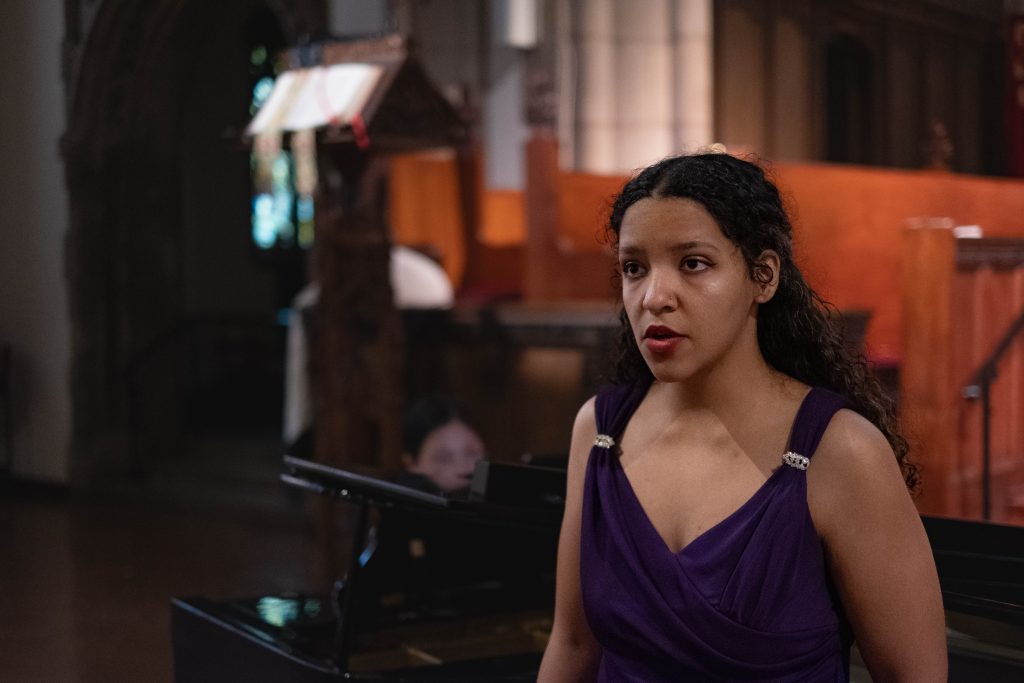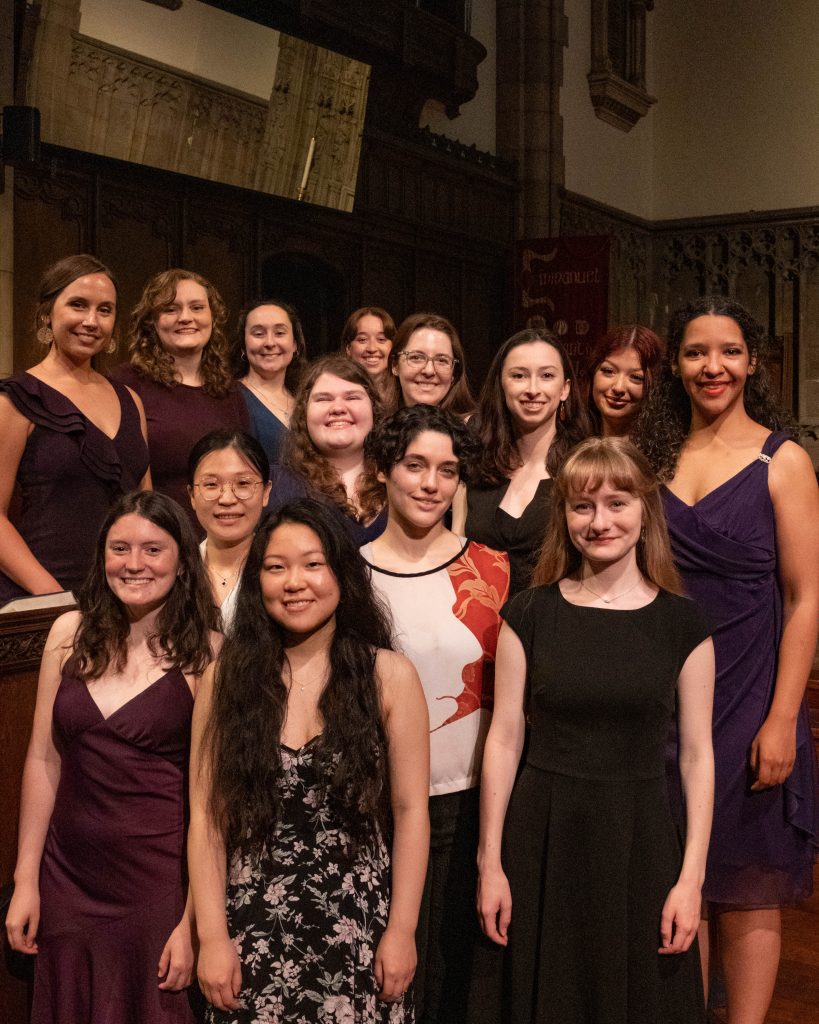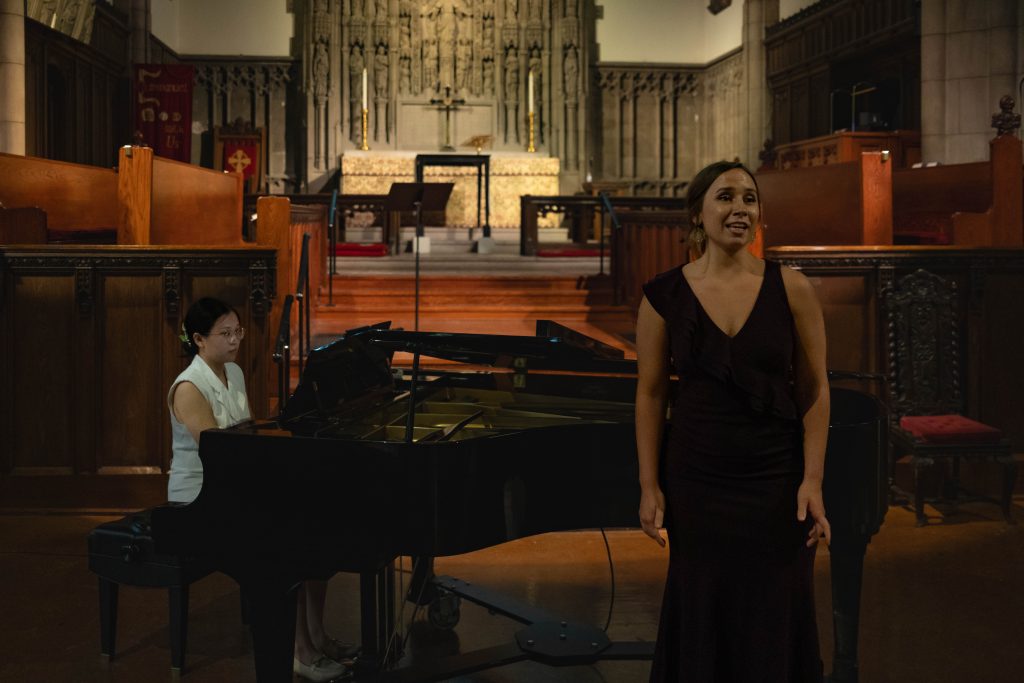The Creative Wire
The Forgotten Genius of Josephine Lang: Creating the Change We Want to See
July 12, 2024 | by Marjorie Sheiman
Edited by Sarah Thomas
I am thankful for classical music. The ability to portray the depths of human emotion on stage through art is a privilege that I feel truly blessed to be a part of. But classical music also has a fraught history of maintaining exclusionary practices in order to appease fabricated and elitist ideals, and that legacy trickles into our lives today.
As a singer, I have had firsthand experience with such exclusion. Many productions for which I have auditioned accepted less than 10% of soprano applicants. In contrast, they accepted most tenors that auditioned, and in some cases even sought to hire more tenors after the initial audition process. On one level, I get it: the piece calls for the cast the composer wants. But on another level, why do we refuse to expand the canon in a way that utilizes the primarily female workforce that is readily available?
In my first term here at Peabody, I was enrolled in LAUNCHPad’s Building a Brand and Portfolio course, which encouraged us to think about what was important to us in our careers and envision the possible avenues we could follow as multi-talented artists. With that same encouragement, I thought about the peaks and valleys of my musical experiences thus far. Coming to Peabody was a dream of mine, and yet there were still moments of intense unhappiness and continued disappointment during my enrollment here. I observed all of my fellow treble singers here at Peabody fall victim to this same inequality, rooted in gender bias, of exceedingly limited performance opportunities. Then I had a moment when it dawned on me: “what are you going to do to change this?” The answer suddenly seemed clear: arts administration.

In classical music culture, and especially at a conservatory, arts administration can often be perceived by artists as a “dirty” field reserved for failed and bitter performers. But what a terrible way to look at the people who are keeping our concert halls booked and running! Arts administration is the backbone of the classical music industry, and these workers often have the most immediate influence in our sector. They are the people arranging rehearsals, fundraising, programming seasons, and—most importantly—hiring artists. It became clear to me that if I wanted to see programs incorporate more treble voices, I had to create the change I wanted to see. I could do more good for this industry that I love from off-stage than on it. So, in Fall 2022 I applied, and was accepted, to Johns Hopkins’ MA in Nonprofit Management.
Fair warning: juggling two master’s degrees at the same time is not for the faint of heart! But as taxing as it was, the education I received was also unbelievably informative and helpful. In Fall 2023, I took the class “Arts Leadership Today” along with my dear friend and colleague, Sophie Clarke (MM ’24, Voice). This class is taught by Dean Bronstein and looks at the basic structure of arts nonprofits in America’s current landscape. For our final project, we had to create a fictional organization. There’s a deep frustration that comes after years of hard work to still be overlooked in favor of our bass-voiced (gender neutral term for historically male/AMAB singers) peers due to a restrictive and alienating canon. In response to this, Sophie suggested that we design a treble vocal ensemble based around the concept of promoting the strength of higher voices in all aspects. Named after St. Cecilia, the patron saint of music, it would be titled “The Cecilia Collective.”
The collective was initially a fun thought experiment for class, but it later turned into a reality when I had to start planning my capstone. My thesis focuses on the artistic and financial benefits of treble-heavy programming for classical music organizations, so I wanted to create a project that reflected that. The project could then also act as an inaugural event for The Cecilia Collective’s establishment, where Sophie would be the Artistic Director and I would be the Executive Director. In an undergraduate theory seminar, I had the pleasure to learn about Josephine Lang. Although virtually unknown today, she was heralded as a genius by her far-more-famous contemporaries, like Robert Schumann and Felix Mendelssohn. Despite being a woman at a time when anything feminine was scorned, her work was valued and she was able to break through barriers that were seemingly untouchable by someone of her gender. After studying much of Lang’s music—almost all of which is free and easily accessible—she seemed like the perfect composer to highlight in our initial concert. I was able to secure funding, thanks in part to a Career Development Grant from Peabody LAUNCHPad, and so “The Forgotten Genius of Josephine Lang” was officially born!
Sophie and I were excited to be dipping our toes into arts administration and getting to craft a project in the way we saw fit. It was deeply important to us that we create opportunities for treble-voiced singers, who never seem to be granted enough stage time despite their immense talent. We also wanted to represent the strength of women/assigned-female-at-birth (AFAB) musicians of all disciplines (performers, administrators, and technicians), so we ensured that everyone involved in this project, both on- and off-stage, identified with one of those two labels.

Another goal was to create an educational and engaging event, so we wanted it to be something more than just a traditional recital. Thanks to an Arthur Friedheim Library Archives Research Award, we were able to add a short lecture, curated by Leah Wenger (MA ’24, Musicology; MM ’24, Historical Performance Voice), that examined the similarities between Lang’s life and the lives of Flora Saudek and Emma R. Steiner, two female composers who were students at the Peabody Conservatory during Lang’s career. Although divided by not only an ocean, but also a language and social barrier, it was fascinating to see how their paths forged on with great similarity.
The day of our event, “The Forgotten Genius of Josephine Lang,” we were welcomed into Emmanuel Episcopal Church with a cast and crew of over 15 talented Peabody students and alumni. The stage was set, and although there was a horrific heatwave, there was a palpable sense of excitement and camaraderie. Over the next 90 minutes, both the audience and I witnessed months of hard work pay off as each person poured their heart into this performance on a sweltering Saturday afternoon in June. One of our performers, Marissa Perri (MM ’25, Voice), reflected that it was “truly inspiring to see a group of women bring a new light to others that were overlooked.”

This project was a labor of love, and there were times that I worried it would be in vain. What could two grad students really change in an industry that’s been around for over 400 years? This event was not going to solve gender inequality in classical music, let alone the world at large. This recital was not going to immediately revolutionize our canon. But as the fears of self-doubt crept in, another performer, Mariana Weaver (BM ’26, Voice) told me that “this project has allowed my confidence in myself as a musician to grow immensely,” and my anxiety disappeared. I do not have the answer for every question, but this event wasn’t meant to answer them all. Instead, it provided professional opportunities for talented young artists to perform the music they love in an environment that supported them wholeheartedly. It provided a place to gather around a common goal of addressing an injustice that’s been normalized for far too long. But most importantly, it provided a chance for a community to spark.
At the end of the recital, as I grabbed my fellow co-founder and confidant Sophie’s hand and looked out for our final bow, all I could think was: I am thankful for classical music.
——————————————————————————————————————-

Marjorie Sheiman (she/her)
Vocal Performance
MM '24

Marjorie Sheiman is a passionate singer dedicated to uplifting and building community. When not writing an essay or in a practice room, she loves to play board games with her friends and family.